Aurora Spring
Biannual 2023
Wednesday 10th – Thursday 11th May

On Wednesday 10th and Thursday 11th May, the University of East Anglia hosted the Aurora Spring Biannual 2023 online.
The program focused on exploring International Education from different perspectives. Participants examined how future education and research would adapt and develop in the changing international climate, with staff and student contributions.
Attendees were delighted to welcome keynote speaker Dr. Anne D’Angelo from the University of Minnesota, who had published a book entitled “Possibilities of International Education.”

-
Day 1 | Wednesday 10 May
Time (BST/CEST) Sessions 8:30 – 9:30 BST / 9:30 – 10:30 CEST Opening: Welcome
Prof Jón Atli Benediktsson – Aurora President and University of Iceland
Prof Mark Searcey – University of East Anglia9:30 – 10:30 BST / 10:30 – 11:30 CEST AI in Higher Education (ChatGPT policies & Implementation)
Prof Fabio Arico (Chair) – University of East Anglia
Prof Irene Häntschel-Erhart – University of Innsbruck
Prof Richard Harvey – University of East Anglia
Auli Viidalepp – University of Tartu10:30 – 12:00 BST / 11:30 – 13:00 CEST Aurora Student Competences (BEVI, LOUIS, and SEISMIC) Adam Christian von Wald – University of Duisburg-Essen
Prof John Style – Universitat Rovira i Virgili
Prof Max Tomoszek – Palacký University Olomouc
Dr Anne-Karen Hueske – Copenhagen Business School12:00 – 13:00 BST / 13:00 – 14:00 CEST Lunch Break 13:00 – 14:00 BST / 14:00 – 15:00 CEST Possibilities of International Education
Dr Anne D’Angelo – University of Minnesota14:00 – 15:00 BST / 15:00 – 16:00 CEST Panel Discussion: Institute for Volunteering Research
Dr Jurgen Grotz – University of East Anglia15:00 – 16:00 BST / 16:00 – 17:00 CEST Collaborative Online International Learning (COIL) Panel Discussion
Prof Helena Gillespie (Chair) – University of East Anglia
Dr Chris Sippel – Case Western Reserve University
Marina Vives i Cabré – Universitat Rovira i Virgili16:00 – 16:30 BST / 17:00 – 17:30 CEST International learning through a UNESCO Chair partnership
Prof Anna Robinson-Pant – University of East Anglia
Prof Yann Lebeau – University of East Anglia
Lauren Bouttell – University of East AngliaDay 2 | Thursday 11 May
Time (BST/CEST) Sessions 8:30 – 9:00 BST 9:30 – 10:00 CEST Second day opening 9:00 – 10:00 BST / 10:00 – 11:00 CEST Informal networking session – How ‘international’ are we?
Prof Eylem Atakav (Chair)10:00 – 11:00 BST / 11:00 – 12:00 CEST Celebrating the Aurora Alliance’s Achievements and Looking Forward: Work Package Updates 11:00 – 12:00 BST / 12:00 – 13:00 CEST Student session – Mental Health
Aurora Student Council12:00 – 13:00 BST / 13:00 – 14:00 CEST Lunch Break 13:00 – 13:50 BST / 14:00 – 14:50 CEST The Suitcase project by the University of Sanctuary
Madeleine Dutton – University of East Anglia
Dr Sophie North – University of East Anglia
Anastasia Petrenko – University of East Anglia14:00 – 14:50 BST / 15:00 – 15:50 CEST Joint session: Pluriversality and Plural epistemologies
Dr Spyros Themelis – University of East Anglia
Dr Marián Arribas-Tome – University of East Anglia
Prof Ulrike Jessner-Shmid – University of Innsbruck15:00 – 15:20 BST / 16:00 – 16:20 CEST Peru Project
Prof Sarah Barrow – University of East Anglia
Prof Eylem Atakav – University of East Anglia15:20 – 15:35 BST / 16:20 – 16:35 CEST Coastal Communities update – Eastern Arc
Dr Wendy McMahon – University of East Anglia15:35 – 16:00 BST / 16:35 – 17:00 CEST Aurora Ryze App (Demonstration & Update)
Dr James Gardiner – University of East Anglia16:00 – 16:30 BST / 17:00 – 17:30 CEST Closing remarks
Auður Inga Rúnarsdóttir – Aurora Central Office
Prof Eylem Atakav – University of East AngliaClosed sessions (invitations have been sent separately to related groups):
VRR meeting: Wednesday 10 May, 10:00 – 12:00 BST (11:00 – 13:00 CEST)
General Council meeting: Thursday 11 May, 8:00 – 10:00 BST (9:00 – 11:00 CEST)
-
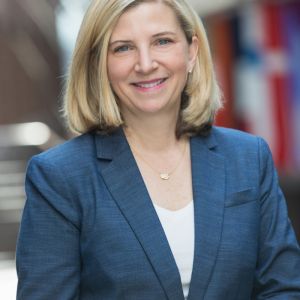
Dr Anne D’Angelo
As assistant dean of global initiatives at the Carlson School of Management, University of Minnesota, Anne M. D’Angelo, PhD, leads the Carlson Global Institute and its internationalization strategy, institutional partnerships, education abroad programs, and offshore global executive MBA programs. Anne also is a member of the graduate faculty in the College of Education and Human Development and a leadership coach. She supports the development of professionals and organizations in strategic and systems thinking, organizational development, intercultural/cross-cultural skills-building, and global mindset/cultural intelligence. Anne has over 25 years of international experience and worked overseas in Central and Eastern Europe, Northern Africa, the Republic of Georgia and Japan. Anne earned her PhD in organizational leadership, policy, and development, specialising in comparative and international development education from the University of Minnesota. Anne received a U.S. Department of State Meritorious Honor Award, a U.S. Fulbright-Nehru Award to India, and the Distinguished Award for Global Engagement from the University of Minnesota. Anne was chair of NAFSA’s Teaching, Learning, and Scholarship Knowledge Community in 2018 and AIEA Presidential Mentor in 2020-2021. She currently serves on the executive committee of the Association of Public Land-grant Universities (APLU) Commission on International Initiatives. Most recently, Anne is the co-editor of Mestenhauser and the Possibilities of International Education: Illuminating Pathways for Inquiry and Future Practice, published in 2023 by Routledge in its internationalization in higher education series.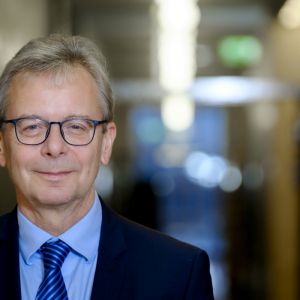
Prof. Jon Atli Benediktsson
Professor Jón Atli Benediktsson was elected Rector of the University of Iceland and President of the Governing Council in July 2015. Prior to taking office, Jón Atli Benediktsson was a professor in the Faculty of Electrical and Computer Engineering. He was the Pro-Rector for Science and Academic Affairs from 2009 and served in various other administrative capacities within the University of Iceland. Professor Benediktsson received his PhD in 1990 from Purdue University, USA. His research focuses on remote sensing, image analysis, signal processing and biomedical engineering. He has published over 300 papers and book chapters in his field. Professor Benediktsson is the Chair of the Icelandic Rectors’ Conference, the Chair of the Nordic University Association and sits on the council of the European University Association. Jón Atli was elected President of the Aurora Universities Network in 2020 and re-elected in 2022.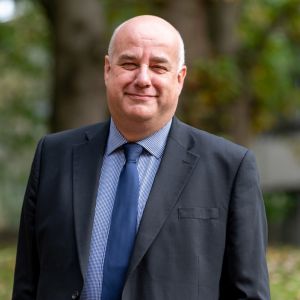
Mark Searcey
Mark Searcey is an accomplished professional who is Chair of Medicinal Chemistry and Pro-Vice Chancellor of Science at UEA. He has held a multitude of unique positions throughout his career, such as Head of the Schools of Pharmacy and Chemistry at UEA, Senior Lecturer at the School of Pharmacy, University of London (2000-2006), Assistant Professor and Research Associate at the Scripps Research Institute, La Jolla, California (1997-1999) and more. Mark’s expertise lies in developing new therapeutics, focusing on targeting DNA and protein-protein interactions. He and his team utilise both solution and solid phase synthesis to make compounds from natural products or synthetic sources. Highlights of his research include discovering a new mode of binding to DNA that targets a Holliday junction, as well as inducing the formation of a Holliday junction at room temperature, with potential applications in nanotechnology and therapeutics. His team has also carried out the first solid phase synthesis of the chlorofusin peptide and followed it with the synthesis of a DNA-binding molecule known as triostin A. Currently, Mark and his team are focused on targeting protein-protein interactions and DNA targets in cancer and inflammation, as well as synthesising natural products such as simocyclinone.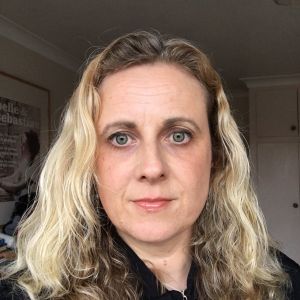
Prof. Helena Gillespie
Professor Helena Gillespie leads the charge for student diversity and inclusion projects such as the Access and Participation Plan, anti-racism efforts, and support for disabled students. Notably, her upcoming book titled “Equality and Social Justice in Education” will be available in July 2023 from Sage. AdvanceHE and the UK Higher Education Funding Council have supported her impressive track record in higher education teaching and learning. Helena is also co-leading the Learning for Societal Impact program for the Aurora Alliance.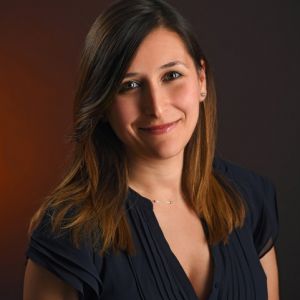
Prof. Eylem Atakav
Eylem Atakav is Associate Pro Vice-Chancellor Global Engagement and Professor of Film, Gender and Public Engagement at the University of East Anglia. She teaches courses on women and world cinema, gender and Middle Eastern media, and documentaries. She is the Institutional Coordinator for the Aurora Network. She is the author of Women and Turkish Cinema: Gender Politics, Cultural Identity and Representation (2012) and editor of the Directory of World Cinema: Turkey (Intellect, 2013). She is the director of Growing Up Married – an internationally acclaimed documentary about forced marriage and child brides in Turkey; and co-director of Lifeline, a documentary that reveals the reality of working in the frontline of the domestic abuse sector in the UK during the pandemic. She is completing a new documentary about migrant victims/survivors of domestic violence in England.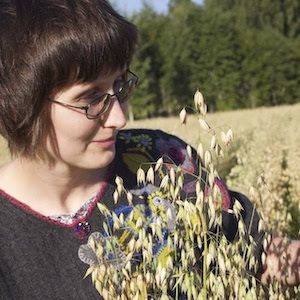
Auli Viidalepp
In her final year as a PhD candidate at the University of Tartu in Estonia, Auli Viidalepp specializes in semiotics. Her research revolves around cultural perceptions and ideologies related to technology, particularly artificial intelligence. Auli’s published works cover topics such as robots in science fiction, GPT-3 and its public reception, and the semiotic functioning of synthetic media, with forthcoming articles on the anthropomorphism of technology. Her overarching aim is to uncover the social construction of knowledge and how discourses draw from various cultural “repositories” to convey complex concepts like AI and technology. These repositories encompass myths, science fiction, folklore, and animistic beliefs, spanning across diverse discourses, including scientific ones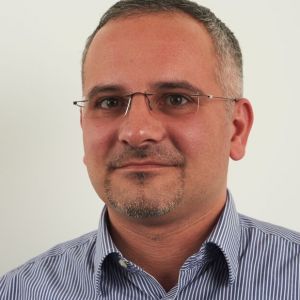
Fabio Aricò
Fabio Aricò is a Professor in Higher Education and Economics. He studied at the University of Pavia (Italy) and continued his postgraduate education at the University of Warwick, where he was awarded his MSc and PhD in Economics. Prior to joining UEA, Fabio worked as a Teaching Fellow at the University of Warwick, as Visiting Professor at Vanderbilt University, and as a Lecturer at the University of St Andrews. Fabio holds a MA in Higher Education Practice, and he was awarded a prestigious National Teaching Fellowship by the Higher Education Academy in 2017. Fabio is a labour economist, and his current research interests are focused on the Economics of Education and Higher Education Policy and Practice, including widening access to higher education, student self-efficacy, assessment and self-assessment, viva-voce examinations, pluralism in Economics education. In addition, he provides consultancy to HE institutions on teaching development, innovation, and technology-enhanced learning.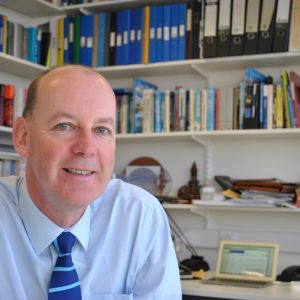
Prof. Richard Harvey
Richard Harvey is a Professor of Computer Science at the University of East Anglia, where he studies problems in machine learning and signal processing – what we now call AI. He has worked in various settings including security and defence, start-ups and in academia. He completed a four stints as a sponsor Professor at Gresham College, the world’s oldest public education body, where he is also a fellow. He is a Fellow of the British Computer Society and a Freeman of the IT Livery Company, the Worshipful Company of Information Technologists. He lives by the sea in Suffolk and is a Coastguard Rescue Officer in his spare time. He has just completed a long stint as Ranger for the Broads Authority, which is one of the UK’s national parks.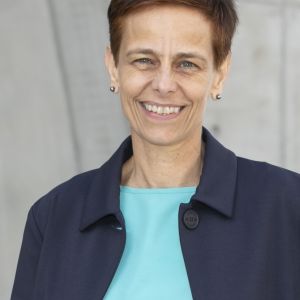
Irene Häntschel-Erhart
Irene Häntschel-Erhart is the newly appointed vice-rector for digitalization and sustainability at the University of Innsbruck. She is a business informatics specialist from Lower Austria who completed her degree and doctorate at the University of Linz before moving to the University of St. Gallen. Through her broad experience in different business enterprises, she collected extensive experience in digitalization and transformation management. After returning to academia, Irene Häntschel-Erhart acted as head of two study programs and a member of the academic Board at Vorarlberg University of Applied Sciences before joining the rectorate of the University of Innsbruck in March.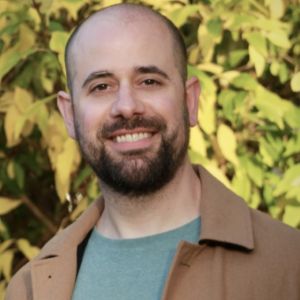
Adam Christian von Wald
Adam Christian von Wald, a native of Rochester Hills, Michigan, embarked on his academic journey at Michigan State University, where he focused on German studies and international political economy, earning his Bachelor’s degree. While studying abroad for a year at the Albert-Ludwigs-Universität in Freiburg, he expanded his German language and culture horizons. Following his undergraduate studies, Adam was granted the prestigious opportunity to work as a Fulbright teaching assistant at the Willy-Brandt-Gymnasium in Oer-Erkenschwick. He taught English while receiving further education at the Universität Duisburg-Essen. After completing his Fulbright teaching grant, he joined the Department for Anglophone Studies at Essen in the language practice team. He has since earned a Master’s degree in American Studies and German Studies while pursuing his doctoral studies. Although Adam’s undergraduate studies focused on comparative economic systems and the German language in the context of 19th century German Romanticism, during his Master’s studies, he shifted his major to the United States of America. Adam’s Master’s thesis, “Up the Social Ladder Tooth and Nail: Representations of the Myth of Success in American Naturalism at the Turn of the 19th Century”, discussed a literary and cultural movement in America at the end of the 1800s using a New Historicist approach. In addition to American media, he has expressed research interests in the multicultural experience in America, masculinity and gender studies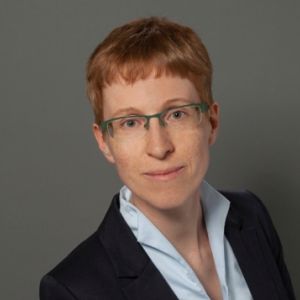
Dr Anne-Karen Hueske
Dr Anne-Karen Hueske joined the Department of Management, Society and Communication at Copenhagen Business School (Denmark) in 2021. She acts as academic co-lead and institutional coordinator for the Aurora Alliance. Together with Prof. Kai Hockerts, she co-developed the SEISMIC survey to measure self-perceived societal change-maker competencies and teaches in the Aurora Social Entrepreneurship and Innovation courses and the Sustainability domain. Before coming to CBS, Anne was established as the founding managing director of PRISMA – Center for Sustainability Assessment and Policy at TU Dresden (Germany). Her research interest centres around sustainability transformation of business and society: sustainability implementation in corporations and higher education institutions, sustainable/social intra/entrepreneurship and responsible management education. She graduated as PhD from TU Dresden (Germany), Diplom in Business Administration from TU Dresden, and Master Grande Ecole in Management from EM Strasbourg (France).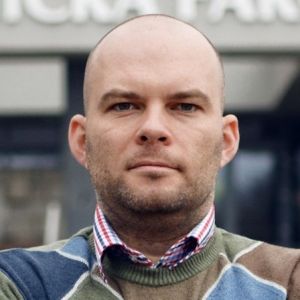
Maxim Tomoszek
Maxim Tomoszek started teaching at the Law Faculty of Palacký University in 2004. Between 2008 and 2016, he was the head of the Centre for Clinical Legal Education. Since 2016, he has served as vice-dean for education. He obtained a PhD in constitutional law in 2012. During his engagement at Palacký, Maxim has taught and published in constitutional law, comparative constitutional law, human rights, and various human rights-oriented legal clinics. In addition, maxim has been regularly teaching and publishing abroad, conducting and organizing training and academic events. Maxim is dedicated to promoting clinical legal education internationally, being on the board of the European Network for Clinical Legal Education and Global Alliance for Justice Education. Within Aurora University Alliance activities, Maxim is Palacký University Resource person for implementing Aurora Competence Framework – Learning Outcomes in Universities for Impact in Society (LOUIS), participates in co-creation activities and is a member of Aurora’s LOUIS Expert support centre.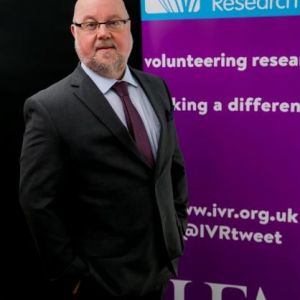
Jurgen Grotz
Jurgen Grotz, PhD is the Director of the Institute for Volunteering Research (IVR) at the University of East Anglia (UEA). With three decades of experience in applied research across the academic, public, private and voluntary sectors, his mainly interdisciplinary work on volunteering and volunteer involvement focuses on participative approaches and public involvement. He co-edited the ‘Palgrave Handbook of Volunteering, Civic Participation, and Nonprofit Associations (2016) and co-authored ‘Patient and Public Involvement in Health and Social Care’ (2020), co-edited ‘Mobilising Voluntary Action in the UK: Learning from the Pandemic (2022) and ‘Volunteering, research and the test of experience’ (2022) and co-authored ‘Volunteer Involvement: An Introduction to Theory and Practice’ (2022).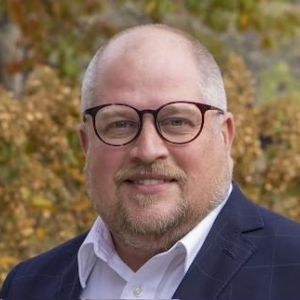
Dr Christopher Sippel
Dr Christopher Sippel joined the Center for International Affairs at Case Western Reserve University as the Director of International Faculty Engagement in 2022. In this inaugural role, Dr Sippel connects faculty with potential global partners to encourage and support international collaborations, assists faculty in their pursuit of Fulbright and other global fellowships, directs the international agreement process, recruits international faculty to CWRU to engage in teaching and research, and is working on the establishment of a Collaborative Online International Learning (COIL) Program for the institution. Before coming to CWRU, he was the Associate Vice President for International, Intercultural, and Service Engagement at the University of Findlay (UF). He was the Senior International Officer for the institution and provided strategic vision and leadership for the Offices of Intercultural Student Services and Service and Community Engagement. Before his time at UF, he held faculty positions at Kanda University for International Studies and Rikkyo University in Japan. Chris received his B.A. from Rhodes College, an M.Ed. from Boston University, and an Ed.D. from the University of Minnesota – Twin Cities.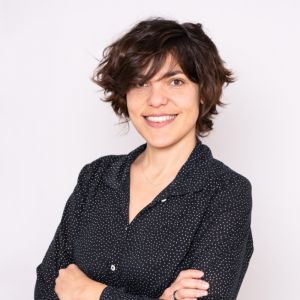
Marina Vives Cabré
Marina Vives Cabré coordinates the Internationalization at Home strategy at the Universitat Rovira i Virgili in Tarragona (Spain), where she is in charge of the transversal implementation of the internationalisation programs of the curriculum, BIP (Blended Intensive Programs) and COIL (Collaborative Online International Learning). She also delivers training and capacity development for teachers and students around COIL and intercultural skills. She is also involved in several European projects on internationalisation at the home of higher education institutions.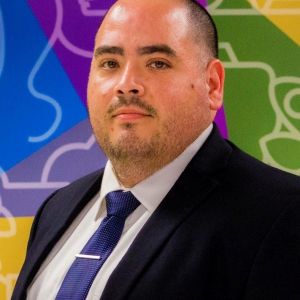
Ricardo Lyle
Ricardo Lyle holds a Bachelor’s Degree in Communication Science and a Master’s Degree in Marketing, both obtained from Tecnológico de Monterrey. He joined Tecnológico de Monterrey in 2011 as a Communication Specialist in the Department of Communication and Promotion of Innovation for the Vice-Rectory of Educative Innovation. Currently, Ricardo is part of the Global Shared Learning: Classroom (GSL Classroom) initiative, promoted by the Vice-Rectory for International Affairs, as a GSL Classroom (COIL/VE) Coordinator. The GSL Classroom initiative focuses on generating international collaborations such as Collaborative Online International Learning (COIL) and Virtual Exchange (VE), promoting Global Learning, and facilitating more internationalization experiences in digital environments for students. As GSL Classroom Coordinator, Ricardo has worked with, trained, and coached more than 80 professors from 36 universities in 13 countries in the planning, design, and implementation of more than 76 successful GSL Classroom (COIL/VE) collaborations since 2018, impacting more than 2,900 students around the globe. In addition, Ricardo and the GSL Classroom team from Tecnológico de Monterrey have developed more than 500 GSL Classroom (COIL/VE) collaborations with the participation of 19,346 students and 740 teachers (Tec and international) from more than 200 universities from 41 countries.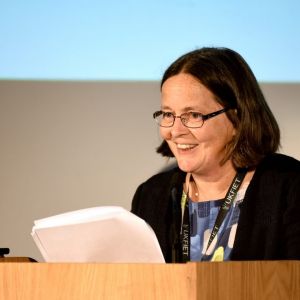
Prof. Anna Robinson-Pant
Anna Robinson-Pant is a Professor of Education at the School of Education and Lifelong Learning and holds the UNESCO Chair in Adult Literacy and Learning for Social Transformation. She began her career in Nepal, working in adult literacy and development with various NGO and Government programmes. Her ethnographic research in Nepal received the UNESCO International Award for Literacy Research in 2001. She has since collaborated with UNESCO and other international development agencies on research and policy initiatives in the Global South. Within UK higher education, she has been active in developing methodological approaches to researching across languages and cultures and received the BMW Group Award for Intercultural Learning (Theory Category) 2007 for her contribution to this field.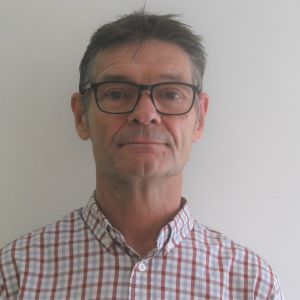
Yann Lebeau
Yann Lebeau is Professor of Higher Education Research and Head of the School of Education and Lifelong Learning. He joined the School in 2007 after holding teaching and research positions in France (Brest, Bordeaux), Nigeria (Ibadan), and the UK’s Open University. His research interests are in the sociology of higher education communities and where higher education, policy and social change intersect. He has done extensive empirical research on the University/society nexus and questions of international policy transfers, internationalisation, and academic mobility, in Africa, Latin America, the Middle East, and Europe.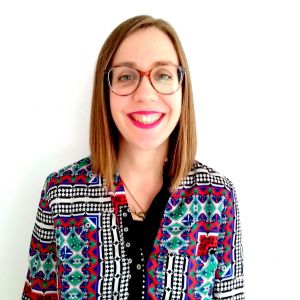
Lauren Bouttell
Lauren Bouttell is a doctoral researcher at the School of Education and Lifelong Learning at the UEA. Her research explores adult learning in organisations supporting people who are refugees and asylum seekers in England and Scotland. She is particularly interested in how policy impacts learning in local communities, social transformation, and informal learning. Her professional background is as an English language teacher, and she taught English for several years in South-East Asia. She has volunteered as an ESOL teacher for refugees and asylum seekers in Scotland and England.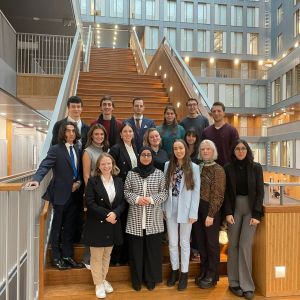
Aurora Student Council
Aurora Student Council consists of two elected student representatives from each university, who collectively decide on student priorities within Aurora. The council is led by the elected president and vice-president. This academic year they have 20 student council members.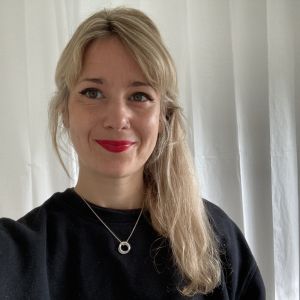
Madeleine Dutton
Madeleine Dutton is the University of East Anglia (UEA) University of Sanctuary Liaison Support Coordinator. Madeleine has been instrumental in the development of the initiative at UEA. Madi has a particular interest in how participatory arts can impact the well-being of members of the sanctuary community.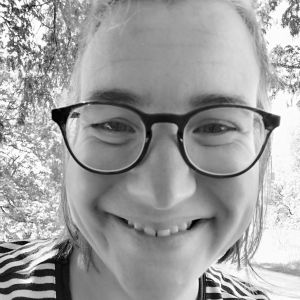
Dr. Sophie North
Dr Sophie North is the Academic Lead of the UEA University of Sanctuary Initiative. Sophie is also a lecturer in Health Sciences. She has a particular interest in the impacts of forced migration on health and loves working with members of the sanctuary community to develop teaching on this area. Prior to working at UEA, Sophie was co-director of an organisation which provided support to asylum seekers and refugees.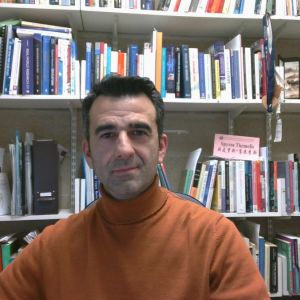
Spyros Themelis
Spyros Themelis is an Associate Professor in Education at the University of East Anglia. He has published a monograph on Social Change and Education (Palgrave, 2013), an edited book on Critical Reflections on the Language of Neoliberalism in Education (Routledge, 2021) and several papers in international journals. His current research explores the contribution of social movements in the renewal of higher education. He is interested in decolonisation in Higher Education, inequalities and inequities in education, and alternative models of Higher Education from around the world.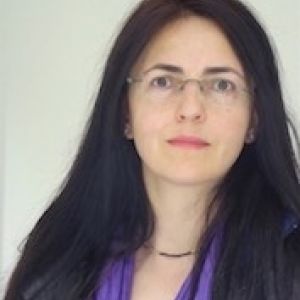
Marián Arribas-Tomé
Marián Arribas-Tomé is a lecturer in Translation Studies, Language and Politics and Spanish at the University of East Anglia (UEA), and a member of the Higher Education Academy. She has worked for six UK universities in Glasgow, London and Norwich and develops projects to support language-related learning as well as diversity, accessibility and sustainability, such as www.spanishbytes.com and www.linguabytes.com. She is also a trustee of the not-for-profit organisation Original Projects and a member of the University Council of Modern Languages (UCML) executive committee. Since 2021 she is working with partners within the Aurora Alliance. Her latest publication is the book chapter “Sustainable Education: responding to diversity inside and Outside the Spanish Classroom” accessible in more than 130 languages.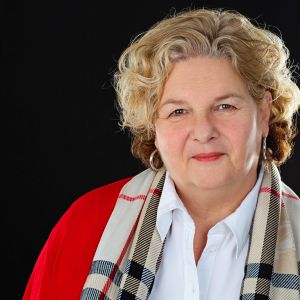
Ulrike Jessner
Ulrike Jessner is Professor at the University of Innsbruck (Austria) and the University of Pannonia, Veszprem (Hungary), acting as a Founding Member of the International Doctoral School of Multilingualism. She has published widely in the field of multilingualism, with a special focus on the acquisition of English in multilingual contexts. She is the co-author of A Dynamic Model of Multilingualism (with Philip Herdina in 2002), which pioneered CDST in language acquisition research. She has been engaged in the development of the research area of third language acquisition/multilingualism as a Founding Member and President of the International Association of Multilingualism. She is the Founding Editor of the International Journal of Multilingualism and the book series Trends in Applied Linguistics (Mouton de Gruyter). With her work on metalinguistic awareness in multilingual learning, she opened a new research avenue on metacognition in multilingual learning and teaching. She is currently carrying out a longitudinal study in the trilingual kindergartens and primary schools in South Tyrol (Italy) and working with the municipality of Innsbruck on the role of communication in understanding energy efficiency.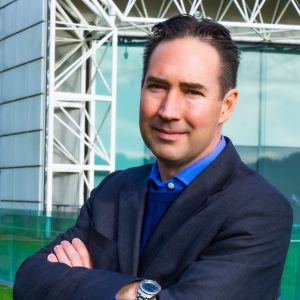
James Gardiner
James Gardiner is an Associate Professor in Marketing and Management and Director of Employability at Norwich Business School, University of East Anglia. James is responsible for professional development, industry placements and enterprise engagement across the UEA business school. James is also co-founder and joint CEO of Studious Digital Education Ltd, an EdTech eLearning company and winner of Barclays Start-up of the Year 2020, which works with universities across Europe to improve access, engagement and achievement across the HE sector.
Prior to joining UEA, James was the Academic Programme Director for the Management and Social Science degrees and worked with the Chartered Management Institute to deliver one of the UK’s first Chartered Manager Degree Apprenticeships. Before joining academia, James founded 2 companies and worked in the London insurance market with Willis Towers Watson and Chubb Insurance Inc. and Twinsoft B.V as Underwriter, Broker, Marketing Director and Managing Director. James completed his International Baccalaureate and studied at the University of Birmingham, the University of Hull and the University of East Anglia. He is a Fellow of the Chartered Institute of Marketing, the Chartered Management Institute and the Higher Education Academy.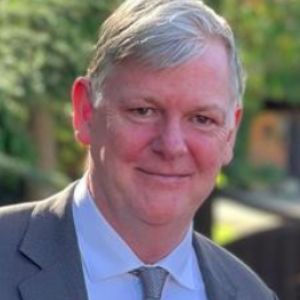
John Style
John Style is a senior lecturer in English Literature at the Universitat Rovira i Virgili (URV) and has been in the English Department since 1994. He was URV’s Vice-rector for Internationalization from 2018-22. John coordinates the use of the Beliefs, Events, and Values Inventory test (BEVI) as part of the Aurora Competence Framework within Aurora and runs training programmes. He is also the European coordinator for BEVI.

University of East Anglia
A research-intensive university, the University of East Anglia (UEA) is ranked one of the United Kingdom’s top 15 universities, one of Europe’s top 100, and is also in the world’s top 100 for research excellence. Located in the Norwich Research Park (NRP), UEA has 15,000 students (4,000 of them postgraduate) and 25 per cent of students are international. UEA shares the NRP with the research-intensive Institute of Food Research, the John Innes Centre, The Sainsbury Laboratory, the Earlham Institute and the Norfolk and Norwich University Hospital.
Specialisms range from environment and climate change, to health and nutrition, exploring issues of family and child policy, economics and business through to creative writing. The university’s interdisciplinary approach, and the international reach of its research, ensures it’s well placed to continue to address significant research questions and make a real impact on the world.
About us
Aurora is a partnership of like-minded and closely collaborating research‑intensive European universities, who use their academic excellence to drive societal change.

Co-funded by the Erasmus+ Programme of the European Union

This project has received funding from the European Union´s Horizon 2020 research and innovation programme under grant agreement No 101035804
© Aurora European Universities | map by Leaflet, © OpenStreetMap contributors, © CARTO | admin | email template.
